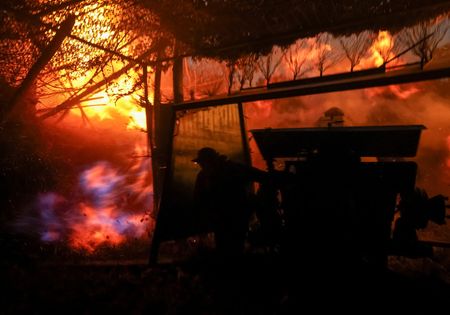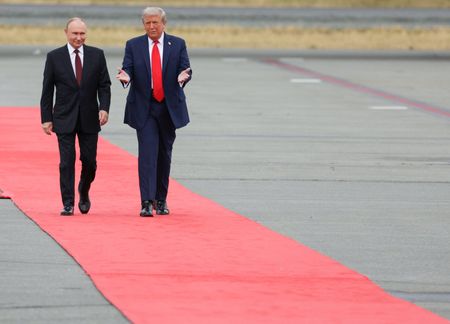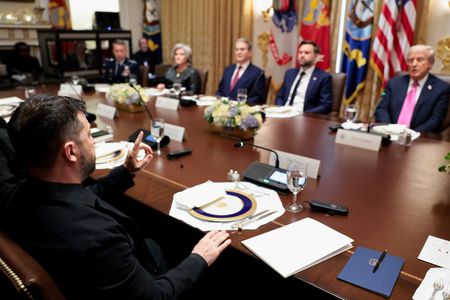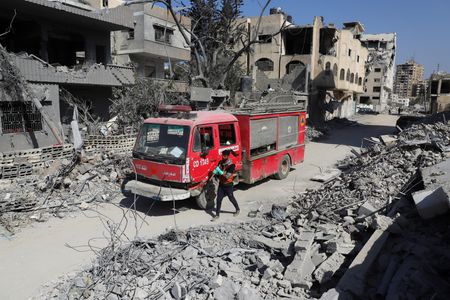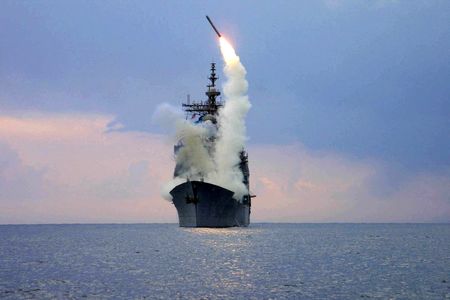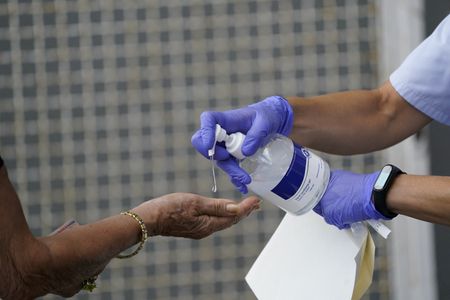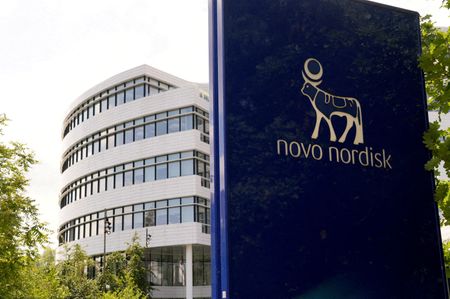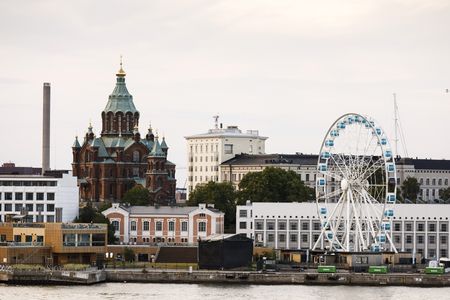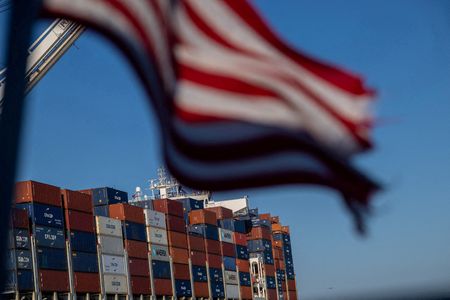By Tom Balmforth and Steve Holland
(Reuters) -A planned summit between U.S. President Donald Trump and Russian President Vladimir Putin was put on hold on Tuesday, as Moscow’s rejection of an immediate ceasefire in Ukraine cast a cloud over attempts at negotiations.
A senior White House official told Reuters that “there are no plans for President Trump to meet with President Putin in the immediate future” after Secretary of State Marco Rubio and Russian Foreign Minister Sergei Lavrov had a “productive call” but opted against an in-person meeting.
Trump had announced last week that he and Putin would meet soon in Hungary to try to bring an end to the war in Ukraine. But Putin has been unwilling to consider concessions. Moscow has long demanded that Ukraine agree to cede more territory before any ceasefire.
European leaders called on Washington on Tuesday to hold firm in demanding an immediate ceasefire in Ukraine, with present battle lines to serve as the basis for any future talks.
Trump, who last week spoke by phone to Putin and met Ukrainian President Volodymyr Zelenskiy, had hoped for another high-profile session with the Russian leader after their August summit in Alaska failed to advance negotiations.
But summit preparations hit a snag and the two sides postponed a preparatory meeting between Rubio and Lavrov that had been expected to take place in Budapest on Thursday.
Lavrov and Rubio spoke by phone on Monday. Lavrov said that the place and the timing of the next Trump-Putin summit was less important than the substance of implementing the understandings reached in Alaska.
The Kremlin said there was no clear date and that “serious preparation” for a summit was needed and that may take time.
“Listen, we have an understanding of the presidents, but we cannot postpone what has not been finalised,” Kremlin spokesman Dmitry Peskov said. “Neither President Trump nor President Putin gave exact dates.”
Asked if Moscow had an understanding of a possible date for the summit, Peskov said: “No, there is no understanding.”
‘I GUESS THE RUSSIANS WANTED TOO MUCH’
Neither side has publicly abandoned plans for Trump to meet Putin. Hungary’s foreign minister, Peter Szijjarto, was in Washington on Tuesday, where he posted on Facebook: “We have some serious days ahead”.
But two senior European diplomats said the postponement of the Rubio-Lavrov meeting was a sign the Americans would be reluctant to go ahead with a Trump-Putin summit unless Moscow yields from its demands.
“I guess the Russians wanted too much and it became evident for the Americans that there will be no deal for Trump in Budapest,” said one.
The Russians “haven’t at all changed their position, and are not agreeing to ‘stop where they are’,” said the second diplomat. “And I assume Lavrov gave the same spiel, and Rubio was like: ‘See you later’.”
EUROPEANS CONCERNED TRUMP WILL GET NO CONCESSIONS
Ukraine’s European allies have been concerned that Trump could meet Putin for a second time without getting any serious concessions from the Russian leader.
In a statement on Tuesday, the leaders of European powers including Britain, France, Germany and the EU said they “strongly support President Trump’s position that the fighting should stop immediately, and that the current line of contact should be the starting point of negotiations”.
Trump has often changed his emphasis in public when speaking about Ukraine. But last Friday after his meeting with Zelenskiy at the White House he explicitly endorsed the position that a ceasefire should start with forces at their present positions.
Reuters and other news organisations reported that Trump’s meeting with Zelenskiy behind closed doors was contentious, with the U.S. president repeatedly using profanity and pushing Zelenskiy to accept some Russian demands.
But Zelenskiy has painted the meeting as a success because it ended with Trump publicly backing a ceasefire at the present lines, Kyiv’s longstanding position.
European leaders are due to meet this week with Zelenskiy as their guest, first at an EU summit and then at a meeting of the “coalition of the willing” countries discussing a security force to guarantee a post-war settlement in Ukraine. Russia rejects such an international security force.
The choice of Budapest as a venue for a Putin-Trump meeting is contentious within the EU, where Hungary’s Prime Minister Viktor Orban is an outlier as one of the few leaders to maintain warm relations with Russia.
Any trip to Budapest would require Putin to fly through the airspace of other EU countries. Poland said on Tuesday it could force Putin’s plane down and arrest him on an international warrant if he flies over its territory, but Bulgaria said Putin could use its airspace to reach the meeting.
(Reporting by Steve Holland, Tom Balmforth and Reuters bureauxWriting by Peter Graff and Steve Holland Editing by Ros Russell and Deepa Babington)

